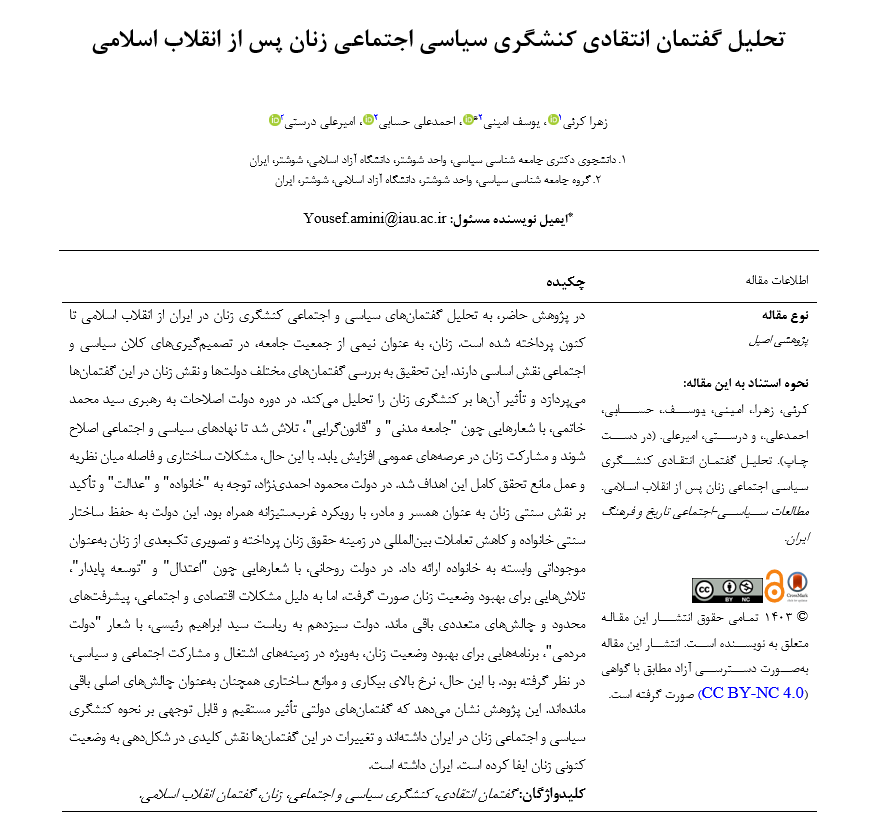Critical Discourse Analysis of Women's Socio-Political Activism after the Islamic Revolution
Keywords:
Critical Discourse, Socio-Political Activism, Women, Islamic Revolution DiscoursesAbstract
This study analyzes the political and social discourses surrounding women's activism in Iran from the Islamic Revolution to the present. Women, as half of the population, play a fundamental role in major political and social decision-making processes. The research examines the various governmental discourses and the role of women within these discourses, analyzing their impact on women's activism. During the Reformist administration led by Mohammad Khatami, slogans such as "civil society" and "rule of law" aimed to reform political and social institutions and enhance women's participation in public spheres. However, structural issues and the gap between theory and practice hindered the full realization of these goals. Under Mahmoud Ahmadinejad's presidency, a focus on "family" and "justice," coupled with an emphasis on women's traditional roles as wives and mothers, was aligned with an anti-Western stance. This administration prioritized preserving traditional family structures and reducing international engagement on women's rights, presenting a one-dimensional image of women as family-dependent beings. During Hassan Rouhani's administration, with slogans like "moderation" and "sustainable development," efforts were made to improve women's conditions. However, economic and social challenges led to limited progress and ongoing struggles. The Thirteenth Administration, led by Ebrahim Raisi with the slogan "popular government," proposed programs to improve women's conditions, particularly in employment and socio-political participation. Nevertheless, high unemployment rates and structural barriers remain significant challenges. This study demonstrates that governmental discourses have had a direct and significant impact on women's socio-political activism in Iran, and shifts in these discourses have played a crucial role in shaping the current status of women in the country.
Downloads

Downloads
Published
Submitted
Revised
Accepted
Issue
Section
License
Copyright (c) 2025 Zahra Korayi (Author); Yousef Amini (Corresponding Author); Ahmadali Hesabi, Amirali Dorosti (Author)

This work is licensed under a Creative Commons Attribution-NonCommercial 4.0 International License.







